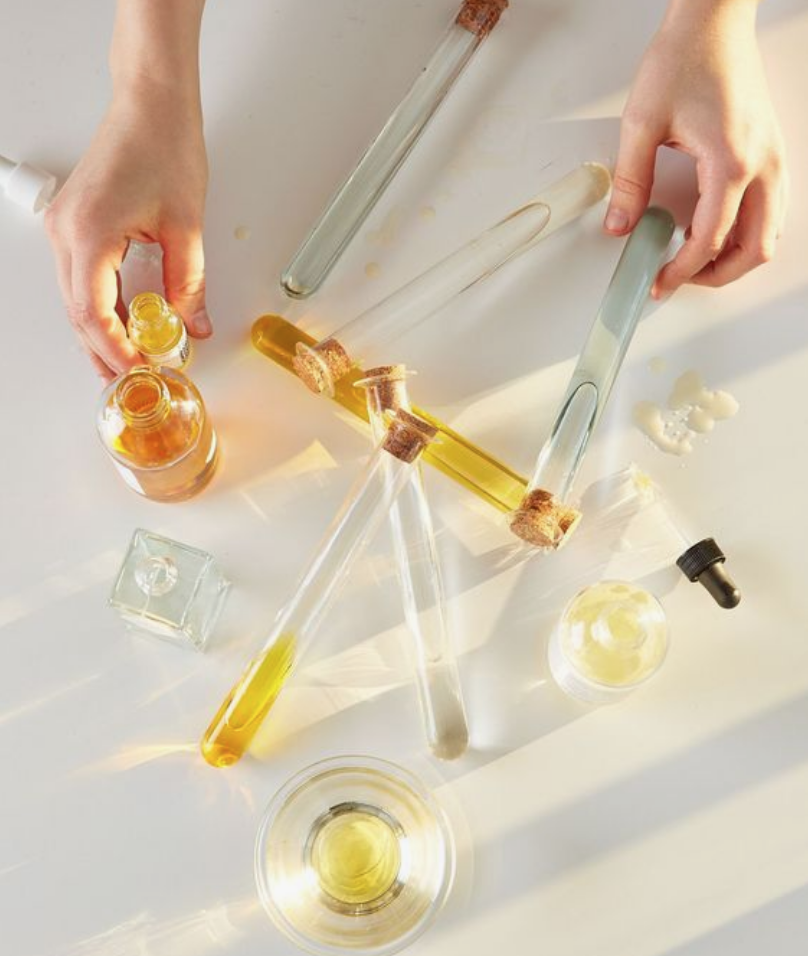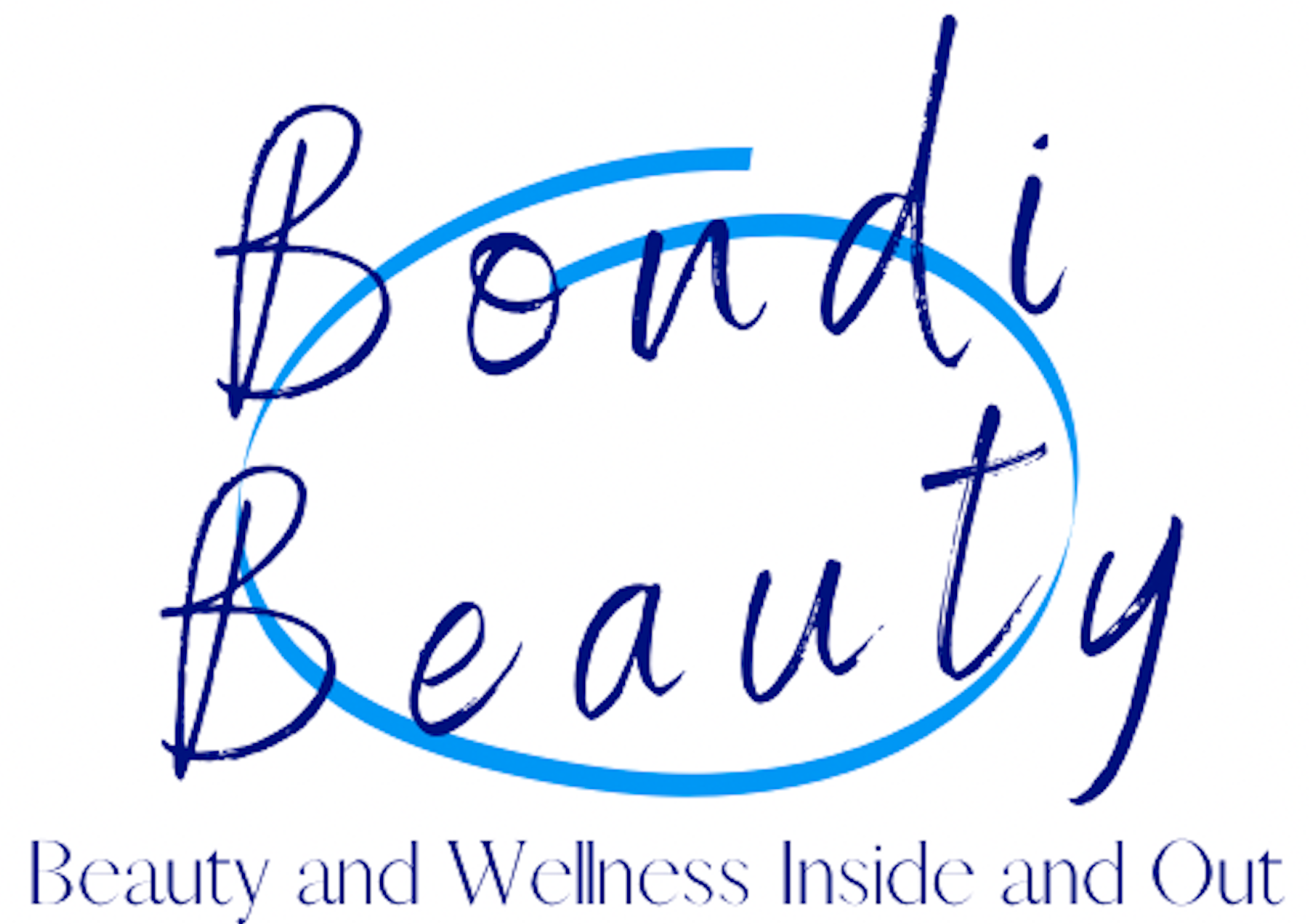Don’t know retinol serums from hyaluronic? No? You’re not alone. Full of powerful, targeted ingredients, serums can become your skin’s best friend – if you know how to use them properly.
The word ‘serums’, and their often-expensive price tag, can send many skincare beginners into a frazzle.
From boosting Vitamin C levels, targeting hyperpigmentation, increasing peptides and providing hyaluronic acid, serums and their magnitude of uses can be downright confusing.
Not to mention there’s the issue of how to actually apply those little drops of liquid gold, so as to not waste the product, damage the skin and ensure the best results.
Here is your ultimate guide to decoding the skin industry’s best friend, the serum.
What is a serum?
A serum is a concentrated gel, oil or cream that contains active ingredients designed to target a specific skin concern. Made up of small molecules, these active ingredients can deeply penetrate the skin for optimal results.

Whether it be dark spots and pigmentation, dry or oily skin, red spots or wrinkles, there’s a serum out there for almost any skin concern.
What is important to note about serums is that they don’t replace other skincare products like moisturizers or cleansers; they’re used in combination with them. Easily absorbed by the skin, serums are best applied after cleansing and toning and before moisturizing.
Additionally, because they’re packed full of potent ingredients, a little goes a long way, and only a touch of the product is needed. This can make the expensive price tag of a serum much more alluring, especially when some products only advise every second day or once a week use.
But how do you know which serum is the right one for you?
Identify your skin concern
Serums are like a powerful targeted shot of nutrients for the skin. So, the first step is identifying what skin issue the serum is going to target.
For dry skin choose… HYALURONIC ACID
Dry skin is going to be best served by reaching for a serum packed full of hydrating ingredients, such as Hyaluronic Acid.
Despite the term ‘acid’, there’s nothing burning or scary about this powerful substance. Hyaluronic Acid (HA) is produced naturally by skin cells to maintain moisture levels, so much so it can retain over 1000 times its weight in water within the cells, says dermatologists from Dermalogica.
In short, it locks in moisture, which keeps the skin feeling hydrated, plump and healthy, while reducing the appearance of fine lines and wrinkles.
According to Healthline, levels of HA can drop due to environmental stressors, such as UV exposure, and other unavoidable factors, such as ageing.
This is where a hyaluronic acid-based serum comes in to boost those levels back up to par.
Providing moisture to the skin, HA serums are great because they can usually work on any skin type – everyone needs water in their skin, even if it skin is easily irritated or prone to breakouts, says Dia Foley, founder of leading skincare-science brand, Indeed Laboratories.

Try the Peter Thomas Roth Water Drench Hyaluronic Cloud Serum (RRP $65 AUD) for a hydrating serum that is made of 75% hyaluronic acid complex.
Ideal for any skin type, this refreshing serum helps to replenish and soothe dehydrated skin while giving a youthful appearance thanks to smoothing of fines lines and wrinkles. Formulated without any harsh sulfates or phthalates, this is a product your skin will feel good about.
For a brighter complexion choose… VITAMIN C
When adding up exposure to sun, poor sleeping habits and lifestyle choices such as smoking and drinking, dull and tired looking complexion can be often an unavoidable fact of life.
Luckily, there’s a serum out there to brighten skin and address hyper-pigmentation. Not just found in oranges, using a Vitamin C-based serum is key.

Vitamin C works to brighten the skin by providing a dosage of necessary, powerful antioxidants that help fight and reverse the damage from free radicals that damage skin cells.
This is because the vitamin is highly acidic, and when applied to the skin, it triggers the skin to “heal” itself, says NYC dermatologist Howard Sobel.
This encourages the production of collagen and elastin, which helps fight ageing. The vitamin also works to clear away dead skin cells from the surface, resulting in a brighter complexion.
Commonly called L-ascorbic Acid on a beauty ingredient list, Vitamin C is also great for reducing scars and other hyperpigmentation, because it helps to prevent the skin’s melanin production. Melanin is the pigment responsible for giving the skin it’s colour, which can result in skin discoloration like dark spots.
But don’t reach for the glass of orange juice and expect the same results. Vitamin C is much more effective for treating skin concerns when applied topically, because it can directly enter the cells.
Try the Mario Badescu Vitamin C Serum (RRP $69 AUD). A cult favourite from the likes of Kylie Jenner and Naomi Campbell, Mario Badescu’s products are worth the splurge.

Three to four drops of this, every second night, is all that is needed to brighten dark spots and hydrate the skin. For best results, incorporate more SPF-based products like a moisturiser into your beauty routine, so that the serum’s full potential does not go to waste, and skin is protected from harsh UV rays.
For youthful looking skin, choose… RETINOL
Even if your skin is wrinkle-free, it’s time to start thinking about an anti-ageing skincare routine to prepare your skin for the long run.
A derivative of Vitamin A, retinol helps to reduce the appearance of fine lines and wrinkles because it boosts collagen production and gives the skin a dose of antioxidants to help address damage from sun, pollution and other free-radicals. Additionally, it encourages cell regeneration which allows for the creation of smoother, younger looking skin, Yale University dermatologist, Mona Gohara M.D. told Marie Claire.

Retinol-based serums should only be used at night time, where the focus is on cell-renewal and rejuvenation. As a strong ingredient, retinol can degrade and become less potent in the sunlight.
Additionally, as new skin cells are being developed, it means skin is more sensitive to harsh UV rays. Apply an SPF moisturizer in the morning to combat and ensure skin remains protected all day long.
According to NYC dermatologist Dr. Joshua Zeichner, retinol isn’t recommended for extremely sensitive skin.
Overuse of retinol can result in redness, burning and flaking of the skin, so it’s advised to start off with a low percentage and only incorporate the substance twice a week to begin with.
Most products also only require a pea-size amount for the whole face, ensuring to spot-test and gradually build up a tolerance to the ingredient.
Can’t decide what your skin issue is? Choose… an ALL-ROUNDER
A multi-functioning serum can often be a great choice for those who are budget constrained or just unsure what the skin really needs.

For an overall benefit, try the ACURE Seriously Soothing Solid Serum 3in1 (RRP$29.95 AUD). Acting as a makeup remover, gentle cleaning balm, a hydrating facial treatment and a remedy for relieving chapped skin on the face and hands, this vegan serum is a perfect addition to a nightly skin routine.
Smelling uniquely fresh, floral and fruity, this serum’s oil-like consistency easily blends into skin for a soothing, refreshing skin treatment.



